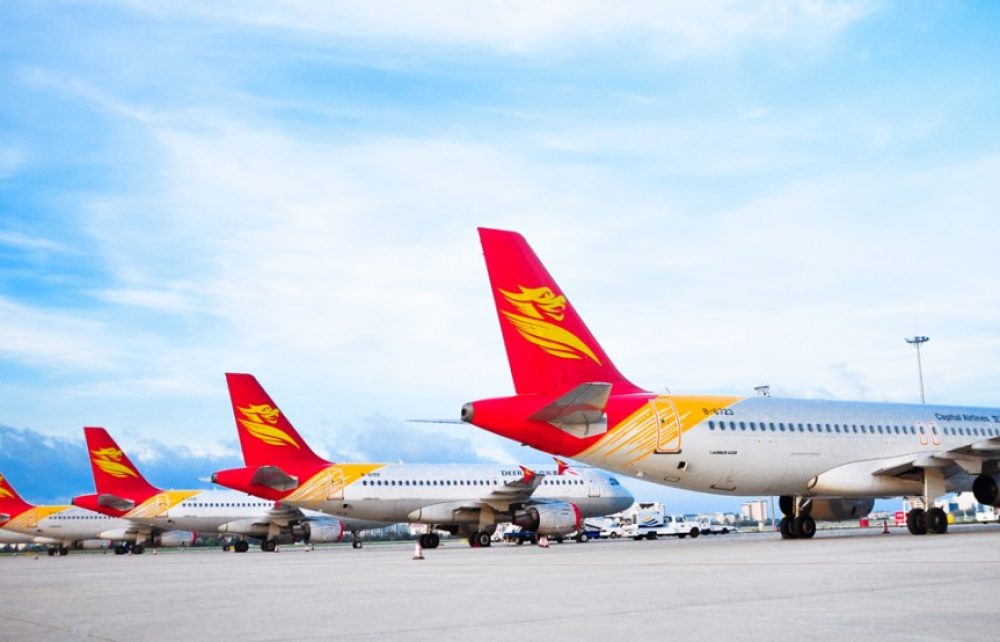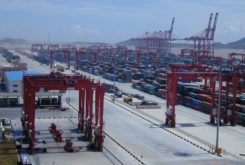The Beijing-Lisbon flight by Beijing Capital Airlines (BCA), had the support of both the Portuguese and Chinese governments, but lasted a little over a year, until October 2018, due to BCA’s parent companies financial difficulties. Despite turmoil in the aviation industry, it is now set to resume.
According to Portuguese Tourism and Transportation website Presstur, BCA will resume its flights to Lisbon on April 24, with a weekly Beijing Daxing-Xi’an-Lisbon connection, on Airbus A330-200.
The departure from Beijing is scheduled for nighttime (8:45 pm) with arrival in Xi’an at 10:55 pm, and departure to Lisbon at 1:10 am the next day, with landing in Portugal scheduled for 7:20 am.
Flights from Lisbon are scheduled for 11 am, to arrive in Xi’an at 5:55 am the next day, from where they continue at 8:05 am to the Chinese capital, where the landing is scheduled for 10:20 am.
The resumption of flights to Lisbon results from the new guidelines announced by the Chinese civil aviation authority (CAAC – Civil Aviation Administration of China), last week.
The regulator has determined that Chinese airlines can only operate one route per country, each with one weekly flight, while foreign carriers can only operate one route to China, also with one weekly flight. In addition to the flight to Lisbon, Beijing Capital Airlines will also have one flight a week between Qingdao and London Heathrow.
The new guidelines also indicate that flights to/ from China must operate with a maximum occupancy of 75%.
Restrictions on the entry of travellers vary between provinces. In Beijing, travellers must stay 14 days in quarantine at designated facilities.
The new guidelines also require that all long-haul flights to Beijing make a technical stopover for inspection at one of the 12 designated airports in China.
Capital Airlines suspended in October 2018 its direct flight between Hangzhou, on the east coast of China, and Lisbon, with a stop in Beijing. It launched the route on July 2017, with three flights a week.
This decision was very inconvenient for the two governments, who long pointed to the route as vital for strengthening bilateral ties. In public, they say that these ties are at a historic high.
The Lisbon-Beijing flight occupancy rate was close to 80%, well above the threshold to make a route profitable. But the company’s financial difficulties made significant downsizing inevitable. It is one of the subsidiaries of Chinese group HNA which has been facing a serious liquidity crisis.
Discreet negotiations were entailed in 2019, in particular for Air China to take over the Beijing-Lisbon route, but did not succeed.
The connection between the two capitals is full of political and diplomatic significance. Both governments also see it as very important from a business point of view.
Over the last few years, tourism has become an engine of economic growth for Portugal, and the country has been keen to boost the arrival of Chinese tourists in the country.
Having recently opened a consulate in Guangzhou, the third-largest city in China, Portugal is expanding its diplomatic presence in China. It has also opened new offices for its trade and investment agency, Aicep Portugal Global.
For Beijing, the air connection is also economically significant, given the presence of Chinese investors in key sectors, such as energy (EDP, Energias de Portugal), banking (Banco Comercial Portugues), insurance (Fidelidade) and health services (Luz Saúde).




